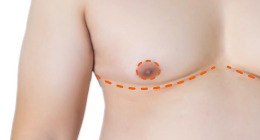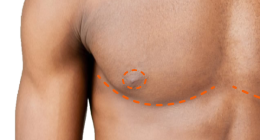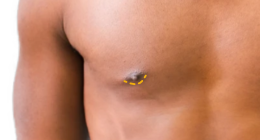Sponsored Article
 How to Research a Surgeon's Background and Credentials
How to Research a Surgeon's Background and Credentials
Choosing between surgeons to perform your Top Surgery can be an exhausting exercise. There's just so much to consider! Their experience with the procedure, surgery results, geographic location and costs are all primary concerns. Often overlooked are a surgeon's background and credentials. This isn't too surprising though because understanding this information can be very confusing!
In this how-to guide, you'll find out how to empower your surgeon search with license and certification lookup tools and get clear answers about what board certification and other credentials really mean.
State Medical License Lookups
Every state in the U.S. has a medical board and every practising physician must have a license issued by the medical board in the state in which they practice. State medical boards ensure that its members are delivering quality and ethically correct services. They also have the authority take disciplinary and corrective action against members.
Looking up a state medical board license is an easy way for you to get important information about the background of the surgeons you are considering. When you look up a surgeon's state license, you will find information about the status of the license, as well as if there have been any past disciplinary actions or public complaints against them.
IMPORTANT: If your surgeon relocated in recent years, you will also want to look up their license record with the medical board in the state they left, as their history in another state will not be included in their current state license record.
You can find a link to every state medical board here: www.fsmb.org/state-medical-boards/contacts
Board Certified: What Does It Really Mean?
Surgeon websites often make mention about board certification, but to the average patient there's little meaning to this. That's because the landscape of board certification is not particularly transparent to consumers. In fact, it's downright confusing, which is unfortunate because understanding board certification is critical for patients.
First, it's necessary to differentiate between state board certification and board certification by a specialty board. As mentioned above, all physicians in the USA must be state board certified to practice, but sometimes this is misrepresented as being board certified by one of the authoritative specialty boards.
In the United States, there are three organizations which collectively oversee the certification of Medical Doctors (M.D.) and Doctors of Osteopathy (D.O.) in 26 recognized medical specialties.
| Certifying Board | National Organization | Physician Type |
|---|---|---|
American Board of Medical Specialties (ABMS) |
Accreditation Council for Graduate Medical Education (ACGME) |
M.D. and D.O. |
American Osteopathic Association Bureau of Osteopathic Specialists (AOABOS) |
American Osteopathic Association |
D.O. only |
American Board of Physician Specialties (ABPS) |
American Association of Physician Specialists |
M.D. and D.O. |


The American Board of Medical Specialties (ABMS) is the largest of these organizations. There is one ABMS board in particular that is relevant to your surgeon search: the American Board of Plastic Surgery (ABPS.) It is the only ABMS board to certify doctors in the specialty of plastic surgery.
Requirements for membership in the ABPS:
-
Graduation from an accredited medical school
-
Completion of five years of additional training as a resident surgeon in a program accredited by the Accreditation Council for Graduate Medical Education or the Royal College of Physicians and Surgeons of Canada. The residency training must cover all areas of surgery, including at least three years devoted entirely to plastic surgery.
-
Passing comprehensive oral and written exams
You might come across surgeons who are "double board certified." Usually this refers to certification with the American Board of Surgery in addition to the American Board of Plastic Surgery. However, it could also mean additional certification by a self-designated board (see below.)
To find out if your surgeon is board certified by one of the ABMS boards, search here:
www.certificationmatters.org/find-my-doctor/

Established in 1939, the American Osteopathic Association Bureau of Osteopathic Specialists (AOABOS) is a non-profit entity that oversees board certification for Doctors of Osteopathic Medicine (D.O.) in the United States. The relevant specialty board is the American Osteopathic Board of Surgery (AOBS.)
Requirements for membership in the AOBS with a specialty in Plastic and Reconstructive Surgery:
-
Graduation from an AOA-accredited College of Osteopathic Medicine.
-
Completion of three years of training in General Surgery
-
As well as:
Two years of training in Plastic and Reconstructive Surgery
An AOA-approved and completed residency program in Orthopedic Surgery
An AOA-approved and completed residency program in Otolaryngology/Facial Plastic Surgery
To find out if your surgeon (D.O.) is board certified by the AOBS, search here: doctorsthatdo.org
Cosmetic Surgeons and Plastic Surgeons: What's the Difference?
There are numerous opportunities to train in cosmetic surgery but none leading to a certification by an ABMS board. For example, any physician can become board certified by the American Academy of Cosmetic Surgery, including Dermatologists, General Surgeons, General Practioners, and less commonly, Plastic Surgeons. So, a Cosmetic Surgeon could be a General Surgeon with 5 years of post-medical school training in general surgery plus additional training in cosmetic procedures.
In order for a physician to become a Plastic Surgeon, they must complete an approved Residency training program in Plastic Surgery. Plastic surgery involves a spectrum of different components, including cranio-facial surgery, burn surgery, hand/microsurgery, maxillo-facial trauma, general and breast reconstructive surgery, and cosmetic surgery (facelift, tummy tuck, liposuction, etc.). The training required to become a Plastic Surgeon is between 6-8 years after medical school.

The American Board of Physician Specialties (ABPS) is the smallest of the three organizations overseeing board certification in the United States. Not to be confused with the ABMS specialty board the American Board of Plastic Surgery, the ABPS provides board certification to both M.D. and D.O. physicians.
Requirements for membership in the ABPS with a specialty in Plastic and Reconstructive Surgery:
-
Hold active and unrestricted medical license(s) to practice
-
50 hours of Continuing Medical Education, with at least 25 of those hours being related to Plastic and Reconstructive Surgery;
IMPORTANT: In California and New York, physicians certified by ABPS are prohibited from using the term "board certified" unless they are also certified by an American Board of Medical Specialties board.
To find out if your surgeon is board certified by the ABPS, search here: www.abpsus.org/public-inquiries
What About Other Boards?
In addition to the boards overseen by the ABMS, AOABOS and ABPS, there are thousands of other self-designated boards. These boards can be established by anyone, often a group of physicians that establish the criteria for certification. Requirements for membership are much less rigorous than ABMS board certification. Some states, like California, have passed laws prohibiting physicians from advertising self-designated boards; only the recognized ABMS boards can be advertised. However in some states one can claim to be "Board Certified" even though the certification comes from a self-designated board.
Outside the United States: In Canada, look for certification by the Royal College of Physicians and Surgeons of Canada (RCPSC.) International plastic surgeons should be board certified in their country of origin and be a member of International Society of Aesthetic Plastic Surgery (ISAPS) and International Confederation of Plastic Reconstructive and Aesthetic Surgery (IPRAS).
Society Memberships


Plastic surgeons who are board certified by the American Board of Plastic Surgery are then potential candidates to join the American Society of Plastic Surgeons and/or the American Society for Aesthetic Plastic Surgery. These are examples of professional association or society memberships. These nonprofit organizations seek to further a particular profession, require colleague recommendations and nominations prior to membership, and may require members uphold to certain standards such as ethics or advertising. Other examples include Fellow of the American College of Surgeons (FACS) and Canadian Society for Aesthetic Plastic Surgery (CSAPS.)
As you can see, looking up a surgeon's background and credentials is actually a pretty quick and easy task—once you know what to look for and where to look! While background and credentials make up just a portion of what you should be considering in your surgeon search, here are some actions you can take that can help lead you to the right surgeon for your Top Surgery:
- Lookup the surgeon's state medical board license and look for past complaints and disciplinary actions
- Verify board certification(s)
- Look for memberships in a surgery "society" or "association" on your surgeon's website
Lookup Tools:
Additional Tips:
-
Find out if you will have a board certified anesthesiologist
The anesthesia experience is critical to a safe and comfortable surgical experience. A board certified anesthesiologist can administer general anesthesia or local anesthesia together with sedation and analgesia (aka monitored anesthesia care or MAC for short.) Find out if the surgeons you are considering have a board certified anesthesiologist in the operating room for the duration of surgery. -
Consider hospital affiliation
Top Surgery is often performed at private surgery clinics but if you are to be admitted to a hospital for some reason, your choice of surgeon can determine which hospital you go to. Find out where the surgeon has admitting privileges, then use ConsumerReports' Hospital Ratings to see how that facility compares with other hospitals in your area.
 This article was expert reviewed by Dr. Scott W. Mosser, MD, FACS. Dr. Mosser is a board certified (American Board of Plastic Surgeons), award-winning plastic surgeon who is an expert at performing all types of FTM/N Top Surgery. Dr. Mosser is a member of WPATH and accepts insurance for Top Surgery from a growing list of insurance companies. Based in San Francisco, Dr. Mosser sees patients from around the country.
This article was expert reviewed by Dr. Scott W. Mosser, MD, FACS. Dr. Mosser is a board certified (American Board of Plastic Surgeons), award-winning plastic surgeon who is an expert at performing all types of FTM/N Top Surgery. Dr. Mosser is a member of WPATH and accepts insurance for Top Surgery from a growing list of insurance companies. Based in San Francisco, Dr. Mosser sees patients from around the country.
Last updated: 04/06/21




